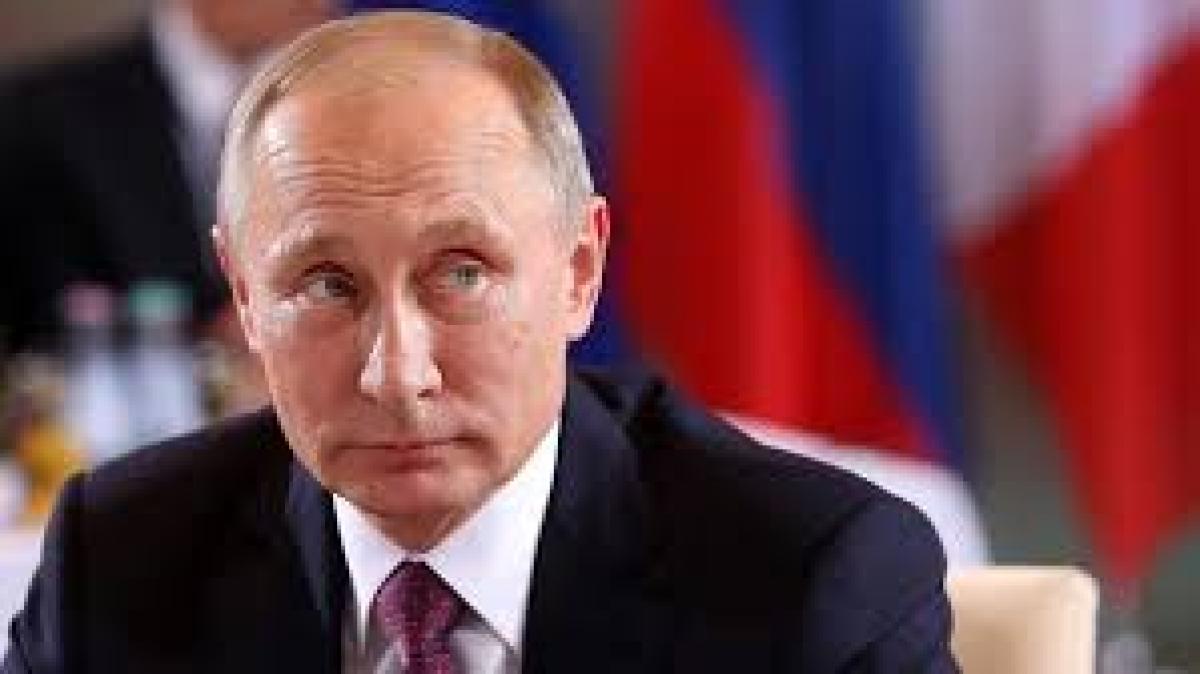Live
- Radhika Apte welcomes first child, shares heartfelt post
- Jacqueline dazzles at Da-Bangg Reloaded concert
- Time to boost measures to prevent drowning, save children: WHO
- TDP achieves milestone with 73 lakhs membership registration, says Chandrababu
- South Korea: Main Oppn hails Yoon's impeachment motion passage as 'victory for people, democracy'
- RG Kar issue: Tension flared over parallel protests by Congress, SUCI(C) outside CBI offices
- After furore, Central Railway revokes order to raze Lord Hanuman Temple at Dadar
- Now hoteliers' body in Bengal's Alipurduar shut doors for Bangladeshi tourists
- District Collector Encourages Students to Utilize Government Facilities for a Better Future
- Per capita availability of fruits, vegetables increases in India
Just In

Russia has deployed a cruise missile in violation of a Cold War-era arms control treaty, a Trump administration official said Tuesday, a development that complicates the outlook for US-Russia relations amid turmoil on the White House national security team.
Russia has deployed a cruise missile in violation of a Cold War-era arms control treaty, a Trump administration official said Tuesday, a development that complicates the outlook for US-Russia relations amid turmoil on the White House national security team.
The Obama administration three years ago accused the Russians of violating the 1987 Intermediate-Range Nuclear Forces Treaty by developing and testing the prohibited cruise missile, and officials had anticipated that Moscow eventually would deploy it. Russia denies that it has violated the INF treaty.
US intelligence agencies have assessed that the missile became operational late last year, said an administration official, who wasn't authorised to publicly discuss the matter and demanded anonymity.
The deployment may not immediately change the security picture in Europe, but the alleged treaty violation may arise when Defence Secretary Jim Mattis attends his first North Atlantic Treaty Organisation (NATO) meeting in Brussels on Wednesday. It also has stirred concern on Capitol Hill, where Senator John McCain, the Senate Armed Services Committee chairman, called on the Trump administration to ensure US nuclear forces in Europe are ready.
"Russia's deployment of nuclear-tipped ground-launched cruise missiles in violation of the INF treaty is a significant military threat to US forces in Europe and our NATO allies," McCain, R-Ariz., said in a statement Tuesday. He said Russian President Vladimir Putin was "testing" Trump.
Trump's White House is in a difficult moment, with no national security adviser following the forced resignation Monday night of Michael Flynn. Flynn is accused of misleading Vice President Mike Pence about contacts with a Russian diplomat while President Barack Obama was still in office.
The New York Times, which was first to report the missile deployment, said the Russians have two battalions of the prohibited cruise missile. One is at a missile test site at Kapustin Yar and one was moved in December from the test site to an operational base elsewhere in the country.
The State Department wouldn't confirm the report. It noted that last year it reported Russia was in violation of its treaty obligations not to possess, produce or flight-test a ground-launched cruise missile with a range of between 500 and 5,500 kilometres, or to possess or produce launchers for such missiles.
"The administration is undertaking an extensive review of Russia's ongoing INF treaty violation in order to assess the potential security implications for the United States and its allies and partners," State Department spokesman Mark Toner said.
John Tierney, executive director of the Centre for Arms Control and Non-Proliferation, said strategic stability on the European continent is at stake.
"If true, Russia's deployment of an illegal ground-launched cruise missile represents a very troubling development and should be roundly condemned," Tierney said.
Senator Tom Cotton, an Arkansas Republican, sees little reason for the US to continue adhering to the INF treaty, in light of Russia's violations. He has recommended building up US nuclear forces in Europe, which currently include about 200 bombs that can be delivered by aircraft. The US withdrew land-based nuclear-armed missiles from Europe as part of the INF deal.
The treaty has special significance in the recent history of arms control agreements. Signed in December 1987 by President Ronald Reagan and Soviet leader Mikhail Gorbachev, it has been credited with helping accelerate an end to the Cold War and lessening the danger of nuclear confrontation. It stands as the only arms treaty to eliminate an entire class of US and Russian weapons - nuclear and conventional ground-launched ballistic and cruise missiles of intermediate range.
The Obama administration had argued for maintaining US compliance with the treaty while urging the Russians to halt violations. At the same time, the Pentagon developed options to counter Russian cruise missile moves, some of which would have involved bold military action.
At his Senate confirmation hearing in February 2014, Ash Carter, who headed the Pentagon until last month, said disregard for treaty limitations was a "two-way street," opening the way for the US to respond in kind. He called Russia's violations consistent with its "strategy of relying on nuclear weapons to offset US and NATO conventional superiority.”

© 2024 Hyderabad Media House Limited/The Hans India. All rights reserved. Powered by hocalwire.com







